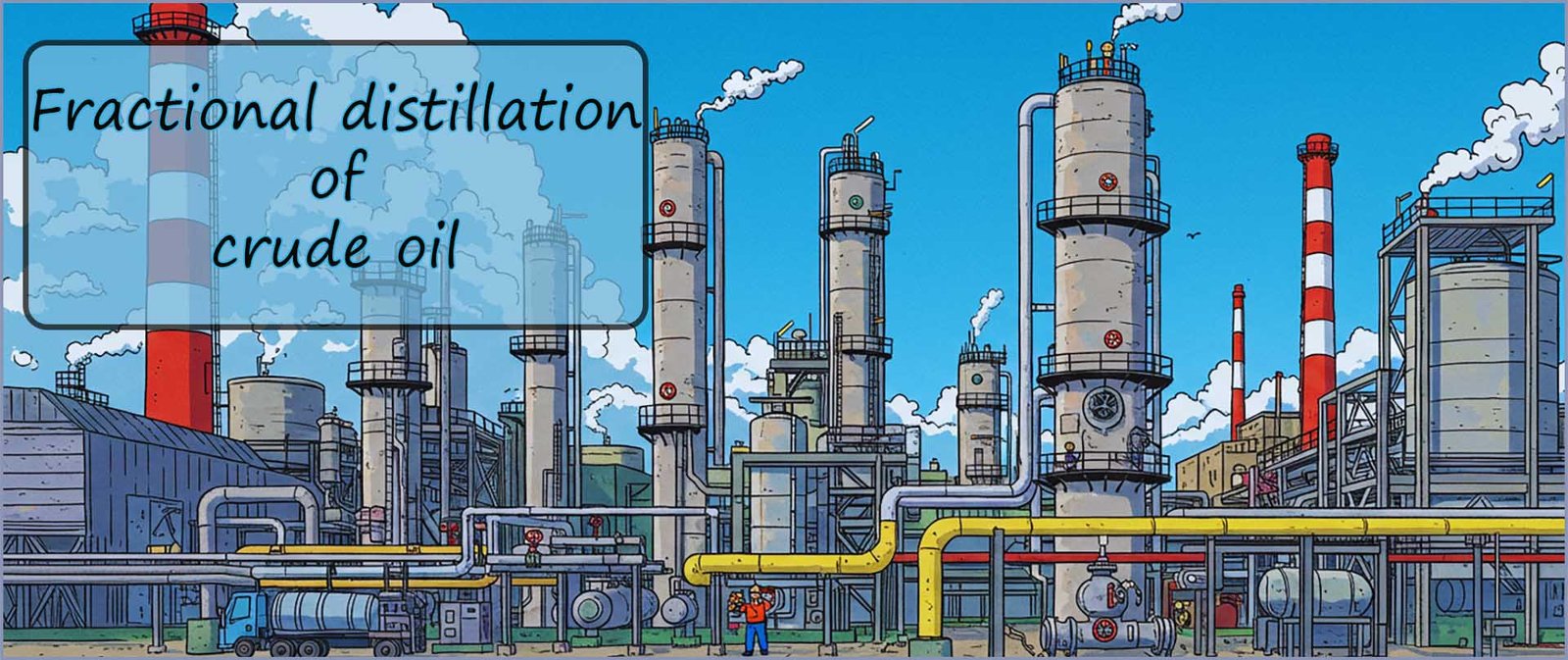

Higher and foundation tiers
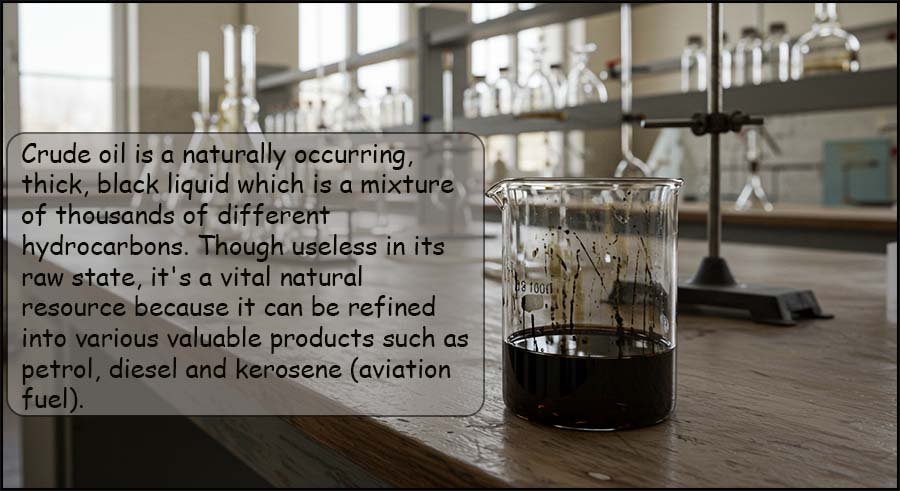
Crude oil despite being one of the world's most valuable natural resources is a useless, smelly and thick
black "liquid" when it comes out of the ground. The main reason for this is that it is a mixture of thousands of different hydrocarbon molecules; now recall that hydrocarbons are compounds containing only the elements
hydrogen and carbon.
There are thousands of valuable hydrocarbons
all mixed together in crude oil and it is the job of an oil refinery to separate out all these valuable hydrocarbons from the crude oil.
Some of the hydrocarbon molecules are small, some are medium sized and some are large. At an oil
refinery this mixture of hydrocarbons present in the crude oil is separated into different fractions of hydrocarbons which contain similar sized molecules; this is easily
done since similar sized molecules have similar boiling points.
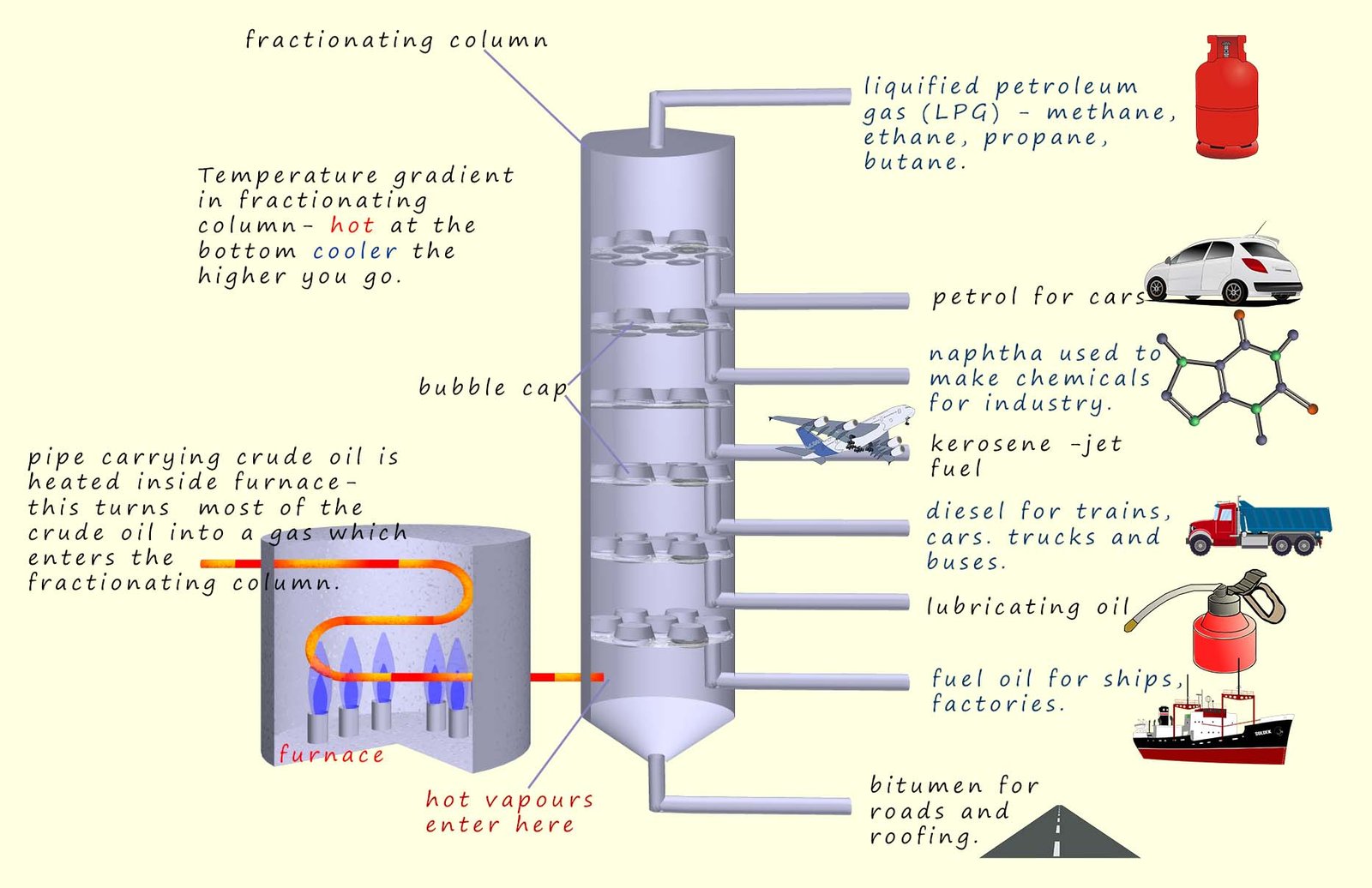
The mixture of hydrocarbons present in the crude oil are separated out into various fractions at the oil refinery, now these fractions are themselves mixtures of many thousands of similar sized hydrocarbon molecules and since these molecules are similar in size they will have boiling points which are relative close to each other. The crude oil is separated in a fractionating column at the oil refinery. To separate the crude oil into its various fractions the crude oil is:
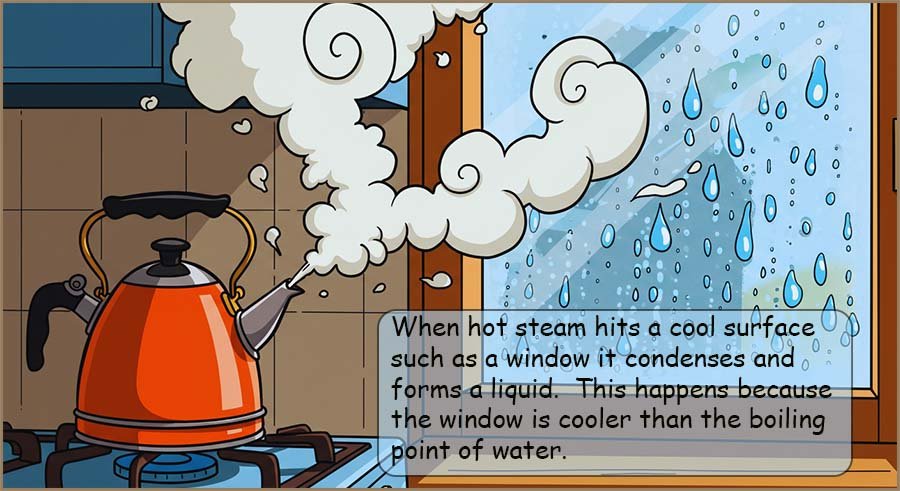
Match up the terms with their correct definitions. Simply click the term and then its correct definition, correct responses will turn green.
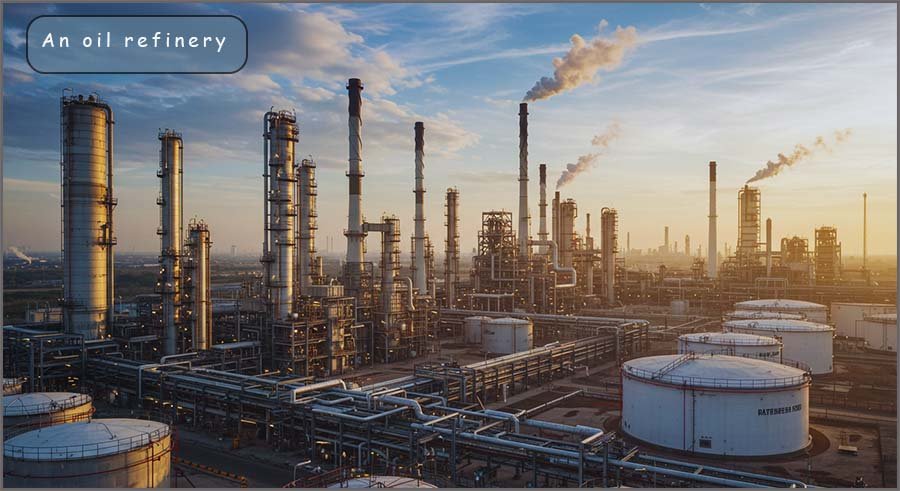 The larger the hydrocarbon molecule the higher
will be its boiling point. The fractionating column will basically separate out hydrocarbon molecules according to their boiling points into separate parts or fractions. Each fraction will
contain many different hydrocarbon molecules each with similar boiling points; these fractions will also contain hydrocarbon molecules of a similar size.
The larger the hydrocarbon molecule the higher
will be its boiling point. The fractionating column will basically separate out hydrocarbon molecules according to their boiling points into separate parts or fractions. Each fraction will
contain many different hydrocarbon molecules each with similar boiling points; these fractions will also contain hydrocarbon molecules of a similar size.
As you can see from the image above lots of very valuable substance such as:
Complete the paragraphs below by filling in the blanks to complete the sentences summarising the main points mentioned above. The words to complete the sentences are shown in the yellow boxes below; simply select the correct word from the drop-down menus to complete the two paragraphs.